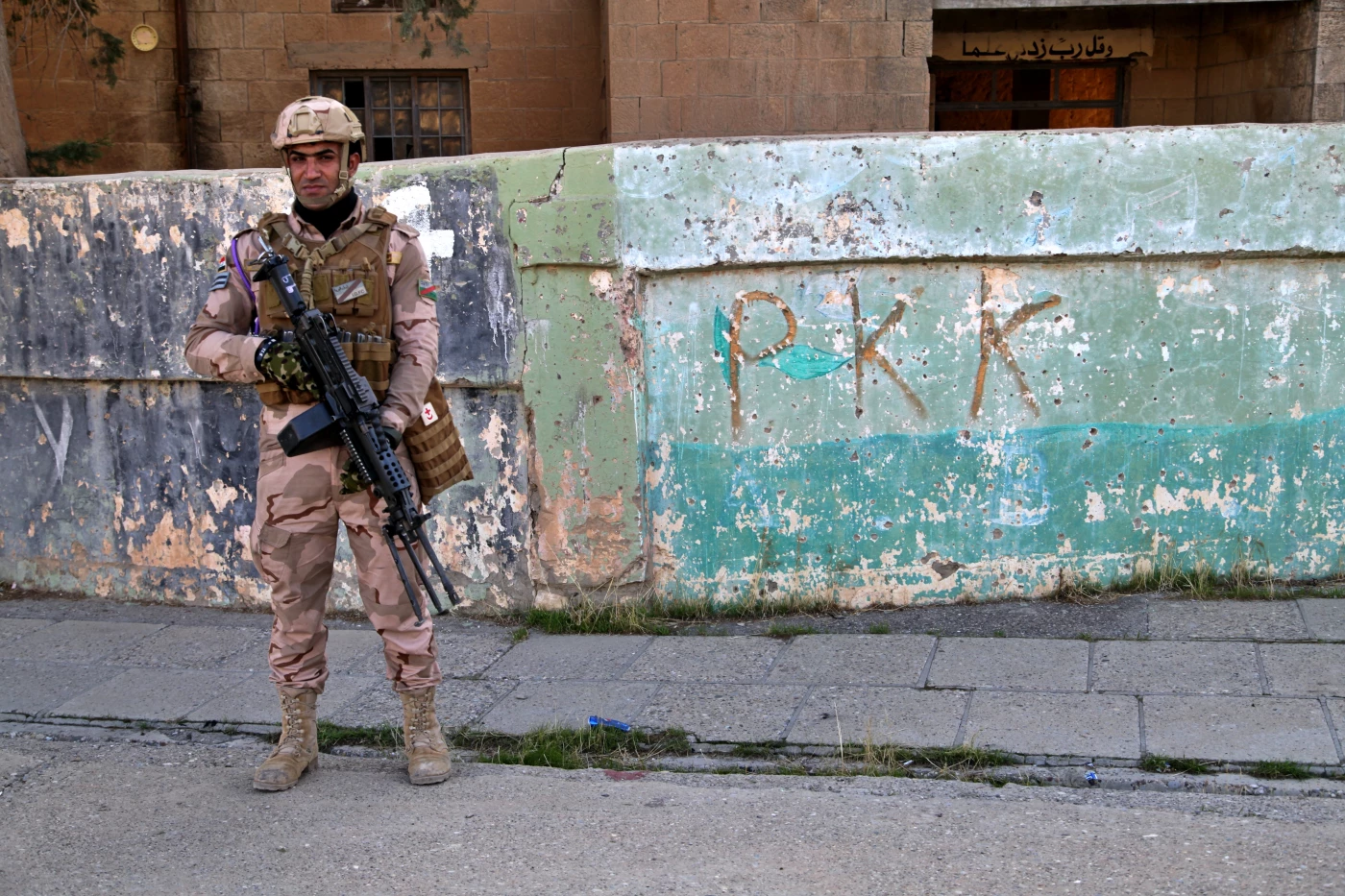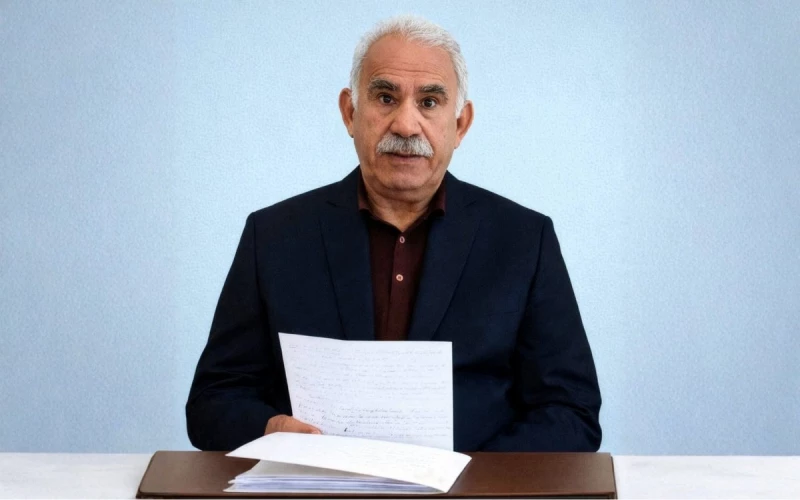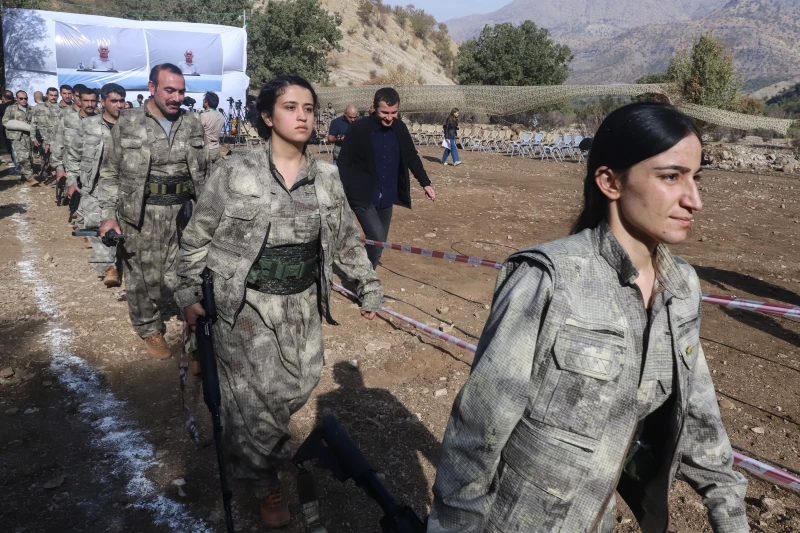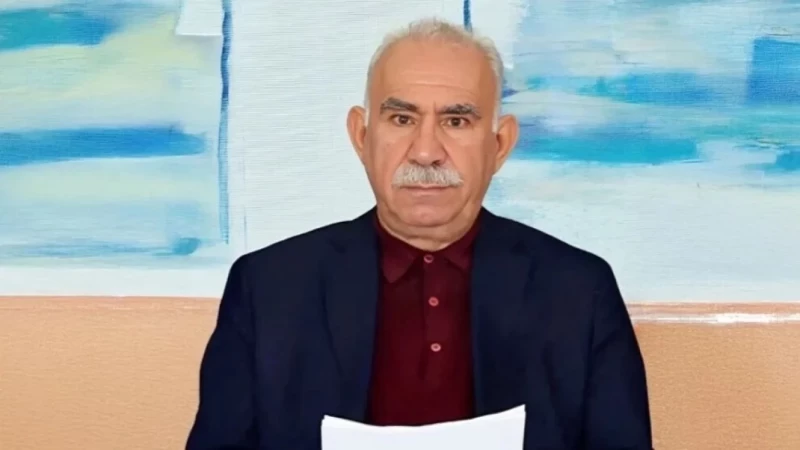ERBIL, Kurdistan Region of Iraq - Since the Kurdistan Workers’ Party (PKK) announced its dissolution and began laying down arms, hopes have risen about the return of displaced people to the Sinjar region. But officials and experts caution that the situation remains far more complex.
In late February, PKK leader Abdullah Ocalan called for the dissolution of all PKK-affiliated groups and the end of its armed activities, which have lasted over four decades. The formal disarmament process began on Friday during an official ceremony in Sulaimani province.
In October 2020, under the leadership of Mustafa al-Kadhimi, the Iraqi government inked a deal with the Kurdistan Regional Government (KRG) aimed at normalizing the situation in Sinjar.
The agreement outlined that the federal government would oversee security operations in Sinjar in collaboration with the KRG, while Nineveh's local administration would manage public services. It further mandated the removal of the PKK elements and other armed factions from the district, transferring control to the federal army and police. However, nearly five years since its ratification, the agreement has yet to be implemented.
‘It’s not that simple’
On Tuesday, Iraq’s Parliamentary Security and Defense Committee said that the return of internally displaced persons (IDPs) to Sinjar will not happen solely as a result of the PKK’s dissolution. The committee cited four key reasons why the situation requires deeper resolution.
Yasser Watout, a member of the committee, told The New Region that “the return of displaced persons to Sinjar will not happen just because the PKK disbanded. There are deeper challenges requiring fundamental solutions. While the symbolic nature of the PKK’s dissolution is significant, the security and humanitarian situation in the district remains complex and continues to prevent thousands of displaced families from going home.”
Watout said the crisis is not limited to the PKK’s presence. “It extends to power struggles between various armed groups, the lack of real state authority, administrative divisions, and weak basic services. There’s also the absence of serious reconstruction.”
He outlined four main obstacles to the return of displaced people: restoring full state control over Sinjar, disarming all armed factions, fully implementing the 2020 Sinjar Agreement between Baghdad and Erbil, and rapidly rebuilding damaged infrastructure and homes.
Watout added, “The continued suspension of Sinjar’s stability, so many years after its liberation from ISIS [Islamic State], reflects a collective administrative and political failure. This cannot be addressed through temporary media announcements.”
‘The Sinjar agreement is the solution’
Security and strategic affairs expert Saif Raad said the PKK’s decision to disarm does not alone resolve the long-standing displacement crisis in Sinjar.
Raad told The New Region that “the PKK’s presence in Sinjar was one of the major obstacles to return, due to repeated Turkish military operations targeting them, which led to additional displacement, like the 2021 airstrike that harmed civilians. Resolving the PKK issue might reduce Turkish military actions, enhancing the sense of safety, particularly among the Yazidi population, which is the majority in Sinjar.”
He noted that the 2020 Sinjar Agreement brokered between Baghdad and Erbil with United Nations support, aimed to remove illegal armed groups including the PKK, and hand over internal security to local police and federal forces. “If the PKK file is resolved, the agreement could be reactivated, paving the way for return.”
Raad said around 350,000 Yazidis are still in displacement camps in Duhok and Erbil, but uncertainty over disarmament remains a major challenge. “Despite the announcement, there are doubts about whether all PKK factions will truly disarm, especially the Shingal Resistance Units (YBS), which are ideologically and militarily tied to the PKK. Administratively and financially, they fall under the Popular Mobilization Forces (PMF) and include around 1,500 fighters.”
He also pointed to comments by PKK-affiliated leaders in May 2025 suggesting that full disarmament is premature. “That complicates matters, particularly since other armed groups remain active in Sinjar, even if the PKK officially departs.”
Raad said that the presence of Iran-backed factions also hinders return due to mistrust in local security. “More than 70 percent of Sinjar is still in ruins from the ISIS occupation in 2014. The lack of essential services such as healthcare, education, and water makes return nearly impossible even if the security improves.”
He warned that some PMF-affiliated groups could obstruct the implementation of the Sinjar Agreement if they feel sidelined. “The YBS, in particular, may continue operating independently of the PKK. Political disagreements between Baghdad and Erbil over control of disputed areas like Sinjar could persist unless a viable joint administration is established.”
“Erbil wants to annex Sinjar into the Kurdistan Region,” he explained, “while Baghdad insists on central control. The PKK’s previous stronghold in Mount Sinjar and its historical role in protecting Yazidis from ISIS still holds sway, making complete removal of influence difficult.”
Raad added that “Sinjar’s crisis is deeply internal, it stems from the struggle between Baghdad and Erbil over constitutionally disputed territories. The presence of multiple armed factions, including the Peshmerga, PMF, and YBS, complicates local governance, as each serves different political interests.”
He also pointed to regional complications: “Turkey views Sinjar as a strategic corridor and a threat due to the PKK’s historic presence. Ongoing Turkish airstrikes disrupt stability. Even if the PKK disarms, Ankara may maintain its presence under the guise of protecting its interests.”
“Iran backs some of these armed factions to bolster its influence,” Raad said. “It sees Sinjar as a strategic corridor between Iraq, Syria, and Lebanon. That support complicates implementation of the Sinjar Agreement.”
Raad noted that the United States supports the agreement as a way to enhance Baghdad’s authority and curb Iranian influence, placing the Sinjar file within broader regional power dynamics.
“Resolving the PKK issue is an important step,” Raad concluded, “but it’s not enough. Sinjar is entangled in regional (Turkey, Iran, US) and domestic conflicts. Without disbanding all armed factions and deploying a centralized federal force, like the Iraqi Army along with a full reconstruction campaign, the crisis will continue. Also, due to the PKK’s role in defending Yazidis from ISIS in 2014, it still enjoys social and political sympathy within Sinjar, meaning its influence will persist even if it lays down arms.”



 Facebook
Facebook
 LinkedIn
LinkedIn
 Telegram
Telegram
 X
X


